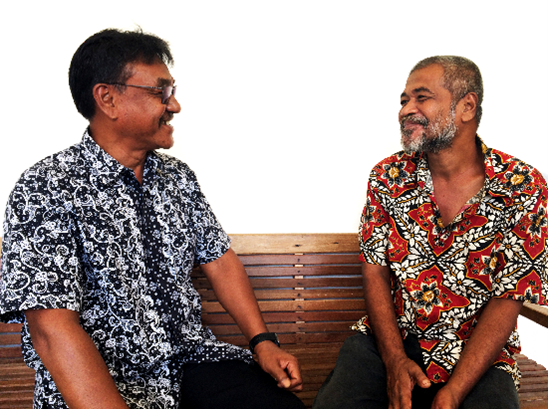Time To Change Global – Reducing Mental Health Stigma
Iag, Mental-health | September 18, 2025
In global effort to reduce mental health stigma, the Time to Change Global (TTCG) pilot project stands out as a compelling example of how empowering people with lived experience of mental health and fostering connection can drive meaningful change.
Implemented between 2018 and 2020 across five countries – Nigeria, Kenya, Uganda, Ghana, and India, the initiative adapted the successful UK-based Time to Change model to local contexts. CBM UK played a key role in coordinating and supporting this effort, strengthening the capacity of local organisations and people with lived experience of mental health conditions to challenge stigma and change public perceptions.
Improvements in public attitudes towards mental health depends not only on short-term impact, but on the ability to empower individuals and embed anti-stigma practices into communities and institutions for long-term change. A recent enquiry into the sustainability of project outcomes revealed that CBM’s involvement in TTCG helped lay the foundation for such enduring change, particularly though its support for Mental Health Champions (people with lived mental health experience) and local implementing partners.
Empowering Voices: CBM’s Commitment to Lived Experience Leadership
TTCG was built on evidence-based understanding that increasing meaningful contact with people who have lived experience of mental health conditions is an effective strategy for challenging stigma and discrimination. With support from CBM, 111 individuals were trained to become Mental Health Champions, gaining the knowledge and skills to share their stories, engage communities, and advocate via social media – both effectively and safely. This training has had a lasting impact, with many Champions continuing their advocacy efforts, establishing their own organisations, podcasts, and mental health initiatives. Their ongoing work demonstrates the ripple effect of CBM’s investment in strengthening the capacity of Champions.
Sustaining Change Through Peer Support and Mentorship
One of the most enduring legacies of TTCG is the peer support networks that emerged. WhatsApp groups formed during the project remain active and continue to provide Champions with emotional support, resources and a sense of community. Mentorship and collaboration between CBM Global staff, partner country coordinators, and Champions is ongoing, helping sustain cross-country learning and solidarity.
Ongoing Use of TTCG Methods by Partner Organisations
Another indicator of sustained change has been the continued use of TTCG methods by implementing partners in Nigeria and Kenya. These organisations have integrated TTCG approaches into their broader mental health and advocacy work, demonstrating its adaptability and relevance beyond the original pilot. In Nigeria, TTCG strategies such as social contact and media advocacy have been applied to other projects. In Kenya where the implementing partner secured additional funding, new cohorts of Champions have been trained allowing the work to continue beyond the pilot. These efforts reflect the lasting value of the TTCG model and the commitment of partner organisations to embed anti-stigma practices into their ongoing programming.
Changing Public Perceptions: A Long-Term Endeavor
One of TTCG’s key goals was to shift public attitudes towards mental health and reduce stigma. CBM supported social media campaigns that reached almost 3 million people across four countries in just two years. Evaluations conducted by Kings College London in Ghana and Kenya showed promising improvements in stigma-related outcomes.
However, sustaining these shifts in public perceptions remains a challenge. In Kenya, despite a second phase of the project running until 2023, significant changes in public stigma levels were not statistically evident – though trends moved in the right direction. This reflects a broader truth: changing societal attitudes is a long-term process. In England, for example, it took over a decade before consistent shifts in public attitudes could be observed and linked to the initial Time to Change campaign.
This does not lessen CBM’s impact. On the contrary, CBM’s contribution laid critical groundwork – empowering Champions, strengthening local capacity, and embedding anti-stigma approaches – that are essential for long-term change. Progress may be gradual, but CBM’s role has been vital in moving the needle forward.
Read the full report, Sustaining the Impact of the Time to Change Global Pilot Programme here.
https://www.cbm.org.au/iag/time-to-change-global-reducing-mental-health-stigma
Related Stories

QualityRights Masters Training Program
Transforming services, promoting rights The QualityRights Masters Training Program is a one-year pilot initiative led by CBM Global Disability Inclusion,...

Strengthening communities for improved mental health
In the Philippines, people with psychosocial disabilities - particularly in rural and underserved areas...

Sustainable and replicable – our approach to mental health
At CBM, we realise that inclusion and mental wellbeing are foundational to the health...
